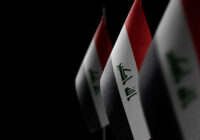There is no conflict in the Middle East, or arguably in the world, that divides people more than the Israel–Palestine conflict. Everyone seems to have an opinion on this issue, from university students to social media influencers, academics to world leaders. However, few people understand the plight of both Jews and Palestinians better than the Kurds. Kurds, too, have been a scattered and persecuted minority.
The Kurds have a historical connection to Palestine that dates back to the time of Salah ad-Din, the great Muslim Kurdish leader revered for his role in defeating the Crusaders in the Holy Land. To expand and protect the vast Ayyubid sultanate which he founded, Salah ad-Din placed many Kurdish settlers in Palestine, Egypt and Syria. The descendants of those Kurdish settlers continue to live in Palestine today, but they have largely assimilated into Arab culture, abandoning their Kurdish roots and language.
Similarly, Jews have lived in Kurdistan for centuries, dating back to the 12th century by some accounts. However, most migrated to Israel with the establishment of the Jewish state and the Right of Return law, which gave all Jews the legal right to immigrate to Israel. Today, there are between 200,000 to 300,000 Kurdish Jews in Israel who continue to celebrate their Kurdish roots but have adopted the Hebrew language.
Religious identity and Kurdish supporters of Hamas
While the Kurds have a historical connection with the two nations, they are not monolithic in their views on the Israel–Palestine conflict. This has become more evident since the October 7 Hamas attack on Israel and the subsequent Israeli invasion of Gaza.
Recently, pictures of assassinated Hamas leader Ismail Haniyeh have circulated in Kurdish social media. This attention to Haniyeh has alarmed many Kurds, including myself, about the growing number of Kurds who seem to support Hamas. They are expressing solidarity with Hamas due largely to the fact that Kurds and Palestinians share a common Muslim identity. Furthermore, Kurds see their own struggle mirrored in the Palestinian experience.
Yet the Kurdish and Palestinian situation is different. Kurds are a diverse people. Not all Kurds are Muslim. Some belong to ancient religious communities like the Yezidi and the Yarsani, who have faced persecution by Muslims seeking religious homogenization.
Islamist Kurdish factions that support Hamas, including some political groups in the autonomous Kurdistan Region of Iraq, add another layer of complexity to the matter. Many of these groups have praised Haniyeh as a martyr and resistance fighter despite Hamas’s use of terrorist tactics like suicide bombings and its support for leaders like Saddam Hussein, who murdered countless Kurds or their alliance with the Islamic Republic of Iran that continues to imprison and execute Kurdish teachers and activists; and assassinate Kurdish leaders. Furthermore, I have searched both in English and Kurdish and found no evidence that these Islamist Kurds expressed any sorrow over the unjust killings of Israeli civilians on October 7, 2023. These Islamists do not care about the fact that Human Rights Watch termed Hamas’s actions war crimes because to them Jewish lives do not matter.
Support for Hamas among these more religiously radical Kurds reveals a key tension in Kurdish society. Despite a century of Kurdish nationalism, many Kurds still seem to prioritize their religious identity over their ethnic one. The Kurdish political class has yet to win the hearts and minds of more religious Kurds. For instance, Ali Bapir, the current leader of the Islamic Justice Group, and members of his party were reported to have refused to stand up for the Kurdish national anthem due mainly to a line in the anthem that reads, “Our faith and religion are our homeland.”
These Islamists often align with regional powers like Iran or Turkey despite both countries engaging in a silent cultural genocide against Kurds that is decades long. Clearly, they still put their religious identity first. This prioritization of religion over ethnic or national identity informs their support for Islamic powers like Iran and Turkey or organizations like Hamas.
Being muslim does not mean that one has to sacrifice his own nation like many of these islamists do. Many prominent historical Kurdish leaders like Sheikh Ubeidullah of Nehri, Sheikh Mehmoud Barzanji, Sheik Said of Piran and Qazi Muhammad were quite religious yet struggled and even gave their lives for the Kurdish nation’s struggle for liberation.
The Islamist Kurdish agenda and its implications
These Islamist Kurds are not merely supporting Hamas because they feel for the oppressed Palestinians. They seek what all Islamist groups seek: a strict Islamic state. This is clear if one examines the history of these groups in Kurdish regions. In Turkish-occupied Kurdistan, a radical armed Kurdish Islamist group known as the Kurdish Hezbollah emerged around the same time as the Kurdistan Workers’ Party (PKK) in the 1980s.
This Islamist organization launched a conflict against the PKK and anyone who disagreed with their extremist views. They carried out kidnappings, assassinations and mass murders. There are now concerns that this terror group has reformed into the Islamist party known as the Huda-Par, which won 4 seats in the Turkish parliament in the 2023 election.
Similarly, in the Kurdistan region in Iraq, long before the Islamic State, secular Kurdish parties like the Patriotic Union of Kurdistan (PUK) faced severe security challenges in dealing with radical Islamist groups like the Islamic Movement of Kurdistan (IMK). The IMK later morphed into Ansar al-Islam and many other Islamist groups. These groups sought to establish a strict Wahhabist Islamic state. Before PUK forces drove them out, they even imposed sharia law in some villages. These were similar to the laws favored by al-Qaeda and Taliban, who incidentally trained many of the founders of Ansar al-Islam. They fought in Afghanistan alongside both these organizations.
So, support for Hamas by Islamist groups is not just mere support of fellow oppressed people or co-religionists. This support is part of a broader Islamist agenda that spans the Middle East region and poses a serious threat to local, regional and international security.
Kurdish neutrality and geopolitical realities
It is important to note that Islamists do not represent all Kurds. The Kurdish position on the Israel-Palestine conflict is quite varied. Major political parties across greater Kurdistan take a neutral position on the Israel-Palestine conflict. They are not completely immune to the strong anti-Israel sentiment in the region. Yet Kurds can sympathize with embattled Israel’s geopolitical position. They recognize that their primary adversaries are Muslim-majority states like Turkey, Iran, Syria and Iraq. These states, not Israel, have historically and continue to oppress Kurds and occupy Kurdish lands.
It was Iraqi dictator Saddam Hussein, not an Israeli leader, who used Islamic scripture to justify the Anfal Genocide, which killed some 50,000 to 100,000 Kurds. He killed 5,000 more using chemical weapons in the city of Halabja. It is Turkey that has jailed, killed and tried to erase Kurdish culture and identity for a century. The mere utterance of the words “Kurd” or “Kurdistan” can land you in Turkish jail for a long time, if not forever. Turkey, not Israel, massacres Kurds and calls them “mountain Turks.”
Muslim states like Iran have been handing heavy prison and even death sentences to teachers, activists and protesters advocating Kurdish rights. This bloody crackdown on Kurdish civil society in Iran has been unceasing since the establishment of The Islamic Republic of Iran’s founder, Ayatollah Ruhollah Khomeini, issued a fatwa to kill Kurds advocating for their rights. Recently, Kurdish girls like Jina Amini were murdered or imprisoned for how they dressed, what they thought or who they were. Thousands were seized during the Jin, Jiyan, Azadi movement that spread all over Iran and capitals across the world. Even now, teachers are tortured or executed in Evin Prison for teaching the Kurdish language.
It was Syria, not Israel, that stripped 120,000 Kurds of their citizenship and made them foreigners in their own land. These Kurds are now stateless. However, since the Syrian civil war, the Kurds under the PYD and its military forces like the YPG have established their own regional self-administration with the cooperation of local tribes and dealt a major defeat of ISIS. Despite the countless lives given in the war against ISIS, the Turkish government has decided to carry out operations that are ongoing against the Kurds in Syria to ethnically cleanse them out of their regions and settle Turkish-backed Islamists and Syrian refugees currently residing in Turkish camps. The gruesome videos and reports of war crimes and human rights abuses carried out by Turkish forces and Turkish backed Islamist forces reveal that Turkey’s efforts to create a safe zone in North Syria are motivated largely by its animosity towards the Kurds inhabiting the region.
It is quite shocking then that these very states that committed and continue to commit crimes against Kurds tell them that “we are brothers in Islam.” These states that occupy Kurdish lands are carrying out a genocide or erasure of Kurdish identity and culture that is killing thousands of people gradually and silently without any real opposition by regional and international powers.
The double standard: Kurdish cause vs. Palestinian cause
Why is it then that these states speak out so vocally against oppression or aggression against Palestinians yet continue to occupy and oppress Kurds in their own backyard? If Palestinians have the right to statehood, so too do Kurds. Yet, the blatant hypocrisy and double standard of these states shows the insincerity of their policy and stance on Palestine.
These states are not interested at all in what is just but what will further their national and ideological interests only. It is not being Muslim that these states care about; if they did, then surely they would not occupy and oppress Kurds who are vastly Muslim. It is not standing against occupation and oppression that they care about, as they claim in the case of Palestine, for if they did care about such matters, they would not inflict the same injustices on the Kurdish people.
There is thus a clear double standard, particularly if one examines how Kurdish self-determination is treated relative to how Palestinian self-determination is treated. Look at the regional reactions to the 2017 Kurdistan Referendum held in Iraqi Kurdistan. Some 139 out of 193 UN member states have recognized Palestinian statehood since the Palestine Liberation Organization (PLO) declared the nationhood of Palestine in 1988. The Kurds received vocal support for their 2017 referendum from Israel alone. Even UN Secretary-General António Guterres called Kurdistan’s move for independence “destabilizing.”
The majority of Muslim states, including the State of Palestine, objected to Kurdish independence. Yet these same states vocally support Palestinian statehood. PLO Secretary General Saeb Erekat called Kurdish independence “a poisoned sword against the Arabs.” Iranian Supreme Leader Ali Khamenei called the vote an act of betrayal and accused the US of seeking to create a new Israel in the region by supporting Kurdish independence — even though the US had opposed the referendum.
Many Kurds are tired of being victims of the geopolitics of the region. Countries like Turkey, Iran, Iraq and Syria typically view both Zionism and Kurdish nationalism as projects of Western imperialism. This is despite the fact that it was the European imperialist Sykes-Picot Plan that unjustly partitioned Kurdistan and allocated it to these states. These states often label Kurdistan a second Israel, illustrating that an extreme anti-Kurdism, similar to their anti-Jewish/Israeli sentiments, animates their outlook.
Kurds, perhaps more than most, empathize with the struggles of Palestinians and Jews. However, their own history has shown them how superficial much of the support from Muslim states for Palestine can be. This awareness allows Kurds to see through hollow and hypocritical rhetoric, making them less inclined to instinctively side with Palestine or Israel. As a result, many Kurds hold more nuanced and balanced views on the issue.
All in all, the Kurdish experience provides a unique lens through which to view the Israel-Palestine conflict. The Kurdish struggle for identity, national sovereignty and justice mirrors that of both Jews and Palestinians. Yet they understand that an international community that applies its moral principles selectively will never end the cycle of violence and oppression in the Middle East.
[Tara Yarwais edited this piece.]
The views expressed in this article are the author’s own and do not necessarily reflect Fair Observer’s editorial policy.
Support Fair Observer
We rely on your support for our independence, diversity and quality.
For more than 10 years, Fair Observer has been free, fair and independent. No billionaire owns us, no advertisers control us. We are a reader-supported nonprofit. Unlike many other publications, we keep our content free for readers regardless of where they live or whether they can afford to pay. We have no paywalls and no ads.
In the post-truth era of fake news, echo chambers and filter bubbles, we publish a plurality of perspectives from around the world. Anyone can publish with us, but everyone goes through a rigorous editorial process. So, you get fact-checked, well-reasoned content instead of noise.
We publish 2,500+ voices from 90+ countries. We also conduct education and training programs
on subjects ranging from digital media and journalism to writing and critical thinking. This
doesn’t come cheap. Servers, editors, trainers and web developers cost
money.
Please consider supporting us on a regular basis as a recurring donor or a
sustaining member.
Will you support FO’s journalism?
We rely on your support for our independence, diversity and quality.











Comment